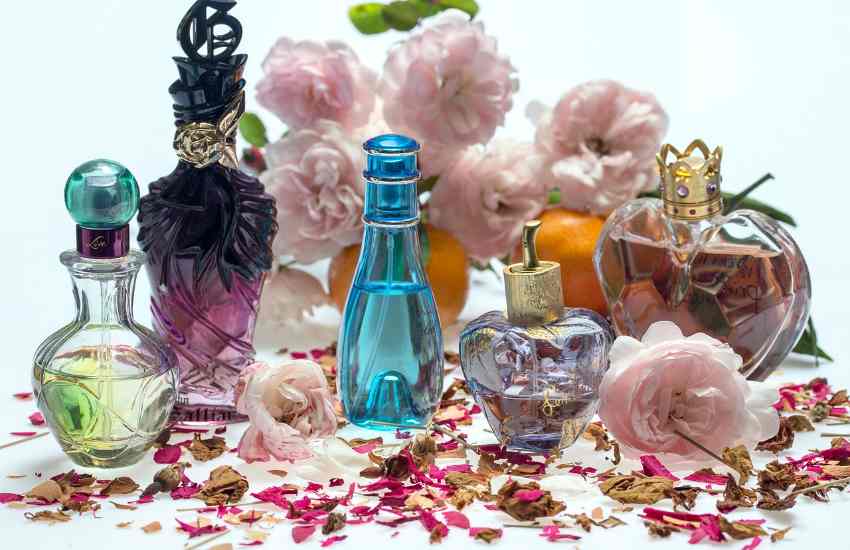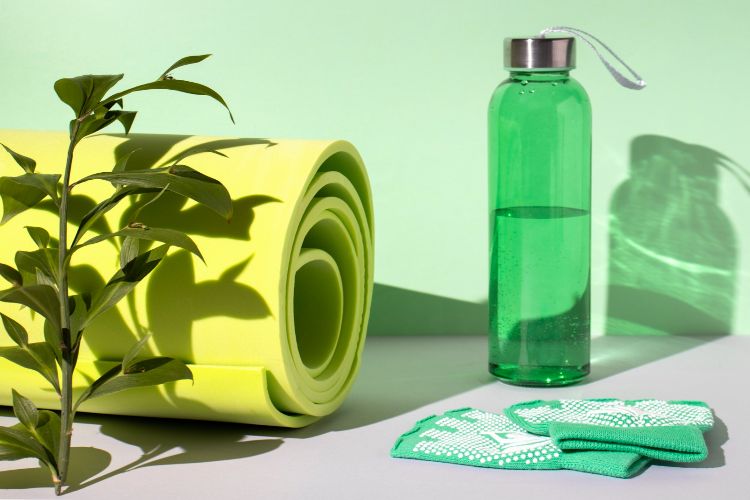

In today’s environmentally conscious world, eco-friendly water bottles have become more than just a trend—they’re a necessity.
As we strive to reduce plastic waste and live more sustainably, choosing the right water bottle, as highlighted by National Geographic, can make a significant difference.
This comprehensive guide explores everything you need to know about eco-friendly water bottles, from their benefits to the best options available.
What Are Eco-Friendly Water Bottles?
Eco-friendly water bottles are designed to minimize environmental impact, often made from sustainable materials and built to last. Unlike single-use plastic bottles, these reusable alternatives help reduce waste and promote a more sustainable lifestyle.
Benefits of Using Eco-Friendly Water Bottles
Environmental Impact
Using eco-friendly water bottles significantly reduces plastic waste, lowering the amount of plastic that ends up in oceans and landfills. Reusable bottles can replace hundreds of single-use plastic bottles each year.
Health Benefits
Many eco-friendly bottles are made from materials free of harmful chemicals like BPA, ensuring safer consumption of beverages.
According to the Mayo Clinic, stainless steel and glass options do not leach toxins, providing a healthier drinking experience.
Economic Savings
While the initial cost of an eco-friendly water bottle might be higher, the long-term savings are substantial. By not purchasing disposable bottles regularly, you save money over time.
Materials Used in Eco-Friendly Water Bottles
Stainless Steel
Stainless steel is durable, non-reactive, and resistant to corrosion. It’s an excellent insulator, keeping drinks hot or cold for extended periods.
Glass
Glass water bottles offer purity of taste, as they do not retain flavors or odors. They are fully recyclable and often encased in protective silicone sleeves for durability.
BPA-Free Plastic
Modern BPA-free plastics are designed to be safe and long-lasting. They are lightweight and shatter-resistant, making them ideal for various activities.
Silicone
Silicone bottles are collapsible, making them highly portable and easy to store. They are also flexible, durable, and free from harmful chemicals.
Top Brands for Eco-Friendly Water Bottles
Hydro Flask
Hydro Flask is known for its high-quality stainless steel bottles, Hydro Flask offers excellent temperature retention and durability.
S’well
S’well bottles combine style with sustainability, featuring sleek designs and superior insulation capabilities.
Klean Kanteen
Klean Kanteen focuses on producing not only environmentally friendly but also ethically manufactured bottles.
Nalgene
Nalgene provides a wide range of BPA-free plastic bottles that are popular for their durability and variety of sizes.
How to Choose the Best Eco-Friendly Water Bottle
Factors to Consider
When selecting an eco-friendly water bottle, consider factors such as material, size, weight, and intended use. Personal preferences like color and design might also influence your decision.
Size
Choose a size that fits your hydration needs. Smaller bottles are great for portability, while larger ones are better for all-day hydration.
Material
Select a material based on your lifestyle. Stainless steel is best for insulation, glass is best for purity, BPA-free plastic is best for lightweight durability, and silicone is best for flexibility.
Purpose
Determine the primary use of the bottle. For sports, opt for durable and easy-to-carry designs. For the office, stylish and sleek bottles might be preferable.
Stainless Steel Water Bottles
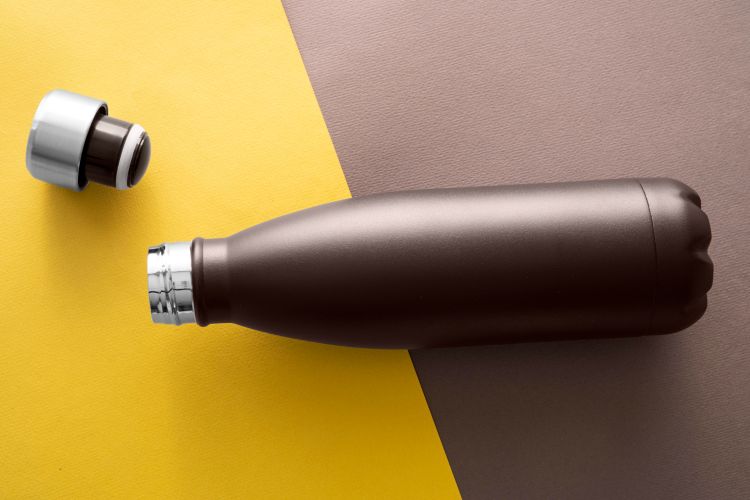
Features
Stainless steel bottles are known for their durability and excellent insulation properties, keeping drinks hot or cold for hours.
Pros and Cons
Pros:
- Long-lasting
- Good insulation
- No chemical leaching
Cons:
- Heavier than other materials
- Can dent if dropped
Best Options
Top choices include Hydro Flask, Klean Kanteen, and Yeti, which are known for their reliable performance and robust construction.
Glass Water Bottles
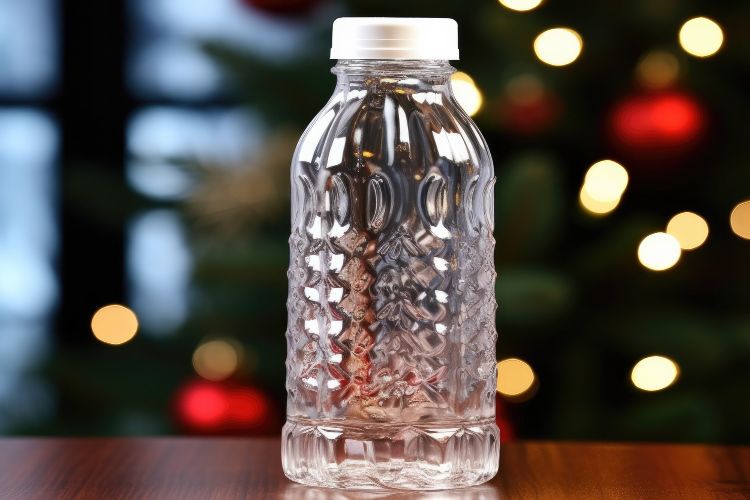
Features
Glass bottles provide the purest taste, are fully recyclable, and often come with protective sleeves.
Pros and Cons
Pros:
- Pure taste
- Fully recyclable
- No chemical leaching
Cons:
- Fragile
- Heavier than plastic
Best Options
Brands like Lifefactory and Ello offer stylish and durable glass bottles with protective silicone sleeves.
BPA-Free Plastic Water Bottles
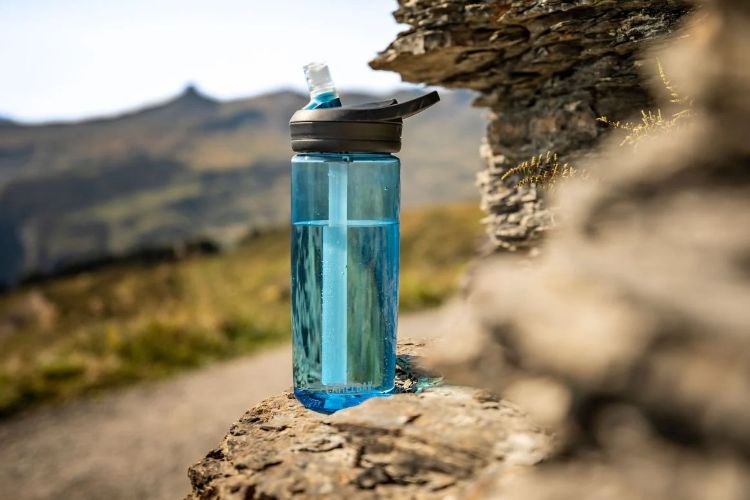
Features
These bottles are lightweight, shatter-resistant, and available in various designs and sizes.
Pros and Cons
Pros:
- Lightweight
- Durable
- Affordable
Cons:
- Can retain odors
- Not as long-lasting as stainless steel or glass
Best Options
Nalgene and CamelBak are popular brands offering high-quality BPA-free plastic bottles.
Silicone Water Bottles
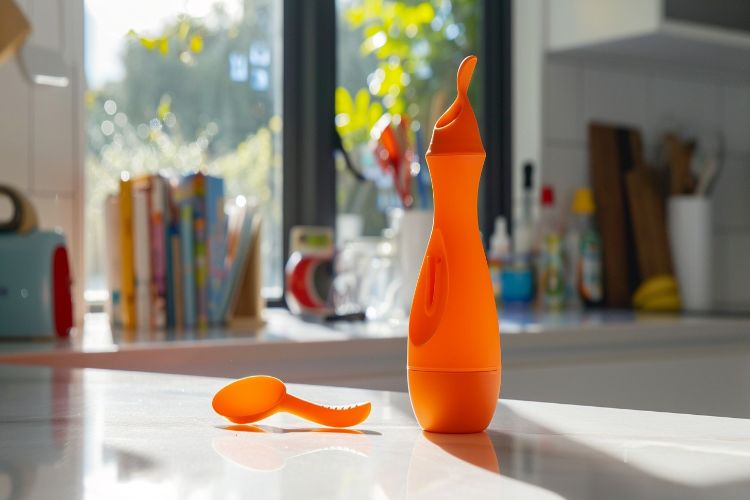
Features
Silicone bottles are collapsible, making them easy to store and carry. They are also flexible and durable.
Pros and Cons
Pros:
- Highly portable
- Flexible and durable
- Chemical-free
Cons:
- Limited insulation
- Can be difficult to clean
Best Options
Check out brands like Hydaway and Nomader for reliable and portable silicone bottles.
Maintenance and Care for Eco-Friendly Water Bottles
Cleaning Tips
Regular cleaning is essential to prevent bacteria buildup. Use mild soap and water for daily cleaning, and occasionally deep clean with baking soda or vinegar.
Longevity
Proper care extends the life of your bottle. Avoid dropping it, especially glass and stainless steel options, and store it with the lid off to prevent odors.
Storage
Store bottles in a cool, dry place. For collapsible silicone bottles, ensure they are thoroughly dried before collapsing to prevent mold growth.
Eco-Friendly Water Bottles for Kids
Safe Materials
Choose bottles made from safe materials like BPA-free plastic, stainless steel, or glass with protective sleeves.
Best Brands
Brands like Contigo and Thermos offer kid-friendly designs that are easy to use and durable.
Tips for Encouraging Use
Personalize bottles with stickers or choose fun colors to make them more appealing to kids.
Customizable and Stylish Eco-Friendly Water Bottles
Design Options
Many brands offer customizable bottles where you can choose colors, and patterns, and even add names or logos.
Personalization
Personalized bottles make great gifts and can help reduce lost items.
Trendy Designs
Stay fashionable with brands like S’well, which offer a wide range of trendy designs and colors.
Eco-Friendly Water Bottles for Outdoor Activities
Durability
For outdoor activities, choose bottles that are durable and resistant to dents and scratches.
Portability
Consider lightweight options with handles or straps for easy carrying.
Best Choices
Hydro Flask and CamelBak offer excellent choices for outdoor enthusiasts due to their durability and design.
Travel-Friendly Eco-Friendly Water Bottles
Compact Designs
Opt for bottles that are compact and easy to carry in bags or backpacks.
Leak-Proof Options
Ensure the bottle has a secure, leak-proof lid to avoid spills.
Lightweight Choices
Lightweight materials like BPA-free plastic and silicone are ideal for travel.
The Impact of Single-Use Plastics
Single-use plastics contribute significantly to pollution, harming wildlife and ecosystems. Switching to reusable water bottles is a simple yet effective way to reduce plastic waste.
Innovations in Eco-Friendly Water Bottles New Materials Innovative materials like bamboo and biodegradable plastics are being used to create more sustainable bottles.
Innovations in Eco-Friendly Water Bottles
New Materials
Innovative materials like bamboo and biodegradable plastics are being used to create more sustainable bottles.
Technological Advances
Smart bottles with features like hydration tracking are emerging, promoting better hydration habits.
Eco-Friendly Water Bottles and Corporate Responsibility
Eco-friendly bottles make excellent corporate gifts, promoting sustainability within companies. Many companies are adopting eco-friendly practices, including providing reusable bottles to employees.
DIY Eco-Friendly Water Bottle Projects
Upcycling Ideas
Turn old bottles into planters, bird feeders, or storage containers.
Custom Decorations
Personalize your bottle with paint, decals, or fabric covers for a unique look.
Where to Buy Eco-Friendly Water Bottles
Online Stores
Websites like Amazon, REI, and official brand sites offer a wide range of eco-friendly bottles.
Physical Retailers
Stores like Target, Walmart, and specialty outdoor shops carry various options.
Specialty Shops
Eco-focused stores and boutiques often have unique and stylish eco-friendly bottles.
Conclusion
Eco-friendly water bottles are a simple yet impactful way to reduce plastic waste and promote a sustainable lifestyle. With various materials, designs, and brands to choose from, there’s an eco-friendly water bottle for everyone. Make the switch today and contribute to a healthier planet.
FAQs
Q1: What makes a water bottle eco-friendly?
Eco-friendly water bottles are made from sustainable materials, are reusable, and often fully recyclable.
Q2: Are stainless steel water bottles safe?
Yes, stainless steel water bottles are safe as they do not leach chemicals and are durable.
Q3: How often should I clean my water bottle?
Clean your water bottle daily with mild soap and water, and do a deep clean weekly.
Q4: Can eco-friendly water bottles go in the dishwasher?
It depends on the material. Check the manufacturer’s instructions; most stainless steel and BPA-free plastic bottles are dishwasher safe.
Q5: What is the best material for an eco-friendly water bottle?
The best material depends on your needs. Stainless steel is durable and insulating, glass offers pure taste, BPA-free plastic is lightweight, and silicone is portable.
Q6: Are eco-friendly water bottles more expensive?
While they might have a higher initial cost, they save money in the long run by eliminating the need for disposable bottles.
